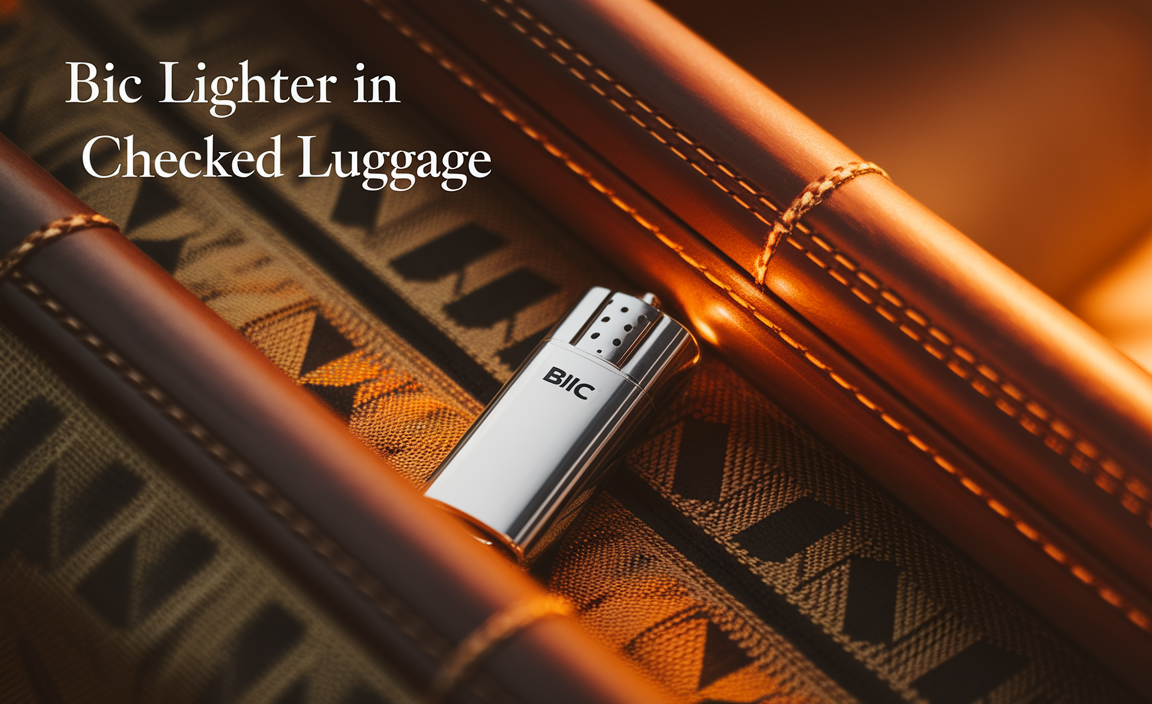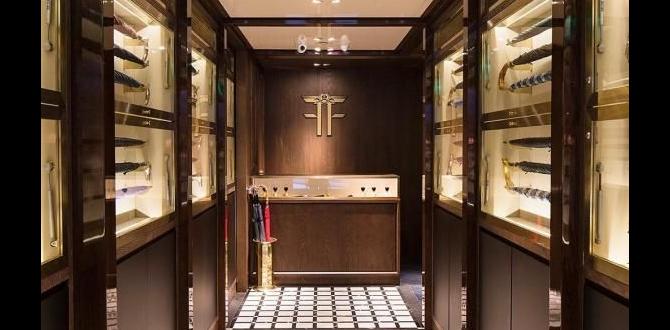Bahrain Safety: Proven Ways To Avoid Scams
Quick Summary: Stay vigilant in Bahrain by recognizing common cons, securing your valuables, and being wary of unsolicited offers regarding money or travel. Always verify information through official channels and trust your gut to ensure a safe and enjoyable trip.
Traveling to a new country is an exciting adventure, and Bahrain, with its rich history and vibrant culture, offers a memorable experience. However, like any popular destination, it’s wise to be aware of potential scams. Petty crime and confidence tricks can sadly be a part of travel anywhere. Knowing what to look out for helps you relax and truly enjoy your journey. This guide will equip you with simple, proven strategies to keep yourself safe and your money secure in Bahrain.
Understanding Common Scams in Bahrain & How to Spot Them
While Bahrain is generally a safe country, being informed about potential scams ensures you’re not caught off guard. Most scams preying on tourists are designed to exploit trust or a lack of familiarity with local customs and prices. Understanding these common tactics is your first line of defense.
The Overly Friendly Stranger
This is a classic around the globe. You might meet someone who is incredibly friendly, perhaps offering to show you around, share a meal, or help you with your luggage. They might then lead you to a shop where you’re pressured to buy overpriced goods, or they might ask for money for an “emergency.”
- Red Flag: Be wary of anyone who is too eager to help or befriend you within minutes of meeting.
- How to Avoid: Polie declined their offers. If they persist, make your excuses and move away. It’s better to be slightly less social than to fall victim. Politely state you are with a group or have plans.
The “Fake Police” or Official Impersonator
In some less secure environments, scammers impersonate police officers or other officials to demand fines or bribe money from tourists. They might claim you’ve committed a minor offense you’re unaware of.
- Red Flag: Officials should have proper identification. They should never ask for cash on the spot.
- How to Avoid: Always ask to see their official identification. If they insist on a fine, request to go to the nearest police station to pay it. Legitimate officials will rarely push for immediate cash.
The “Special Deal” or Unsolicited Offer
This can come in many forms: a taxi driver suggesting a “great” restaurant or shop, someone offering a “discounted” tour, or a vendor claiming a fantastic sale. Often, these “deals” lead to overpriced items, inferior services, or outright theft.
- Red Flag: If an offer seems too good to be true, it almost certainly is. Pressure tactics are also a huge warning sign.
- How to Avoid: Research tour operators and restaurants beforehand. Use reputable sources and pre-booked services. For taxis, agree on a fare or ensure they use the meter before starting your journey.
The “Broken Taxi Meter” or Overcharging
A common scam involves taxi drivers claiming their meter is broken and then charging an exorbitant fare at the end of the ride. Alternatively, they might take a longer, indirect route.
- Red Flag: If the meter isn’t on or appears to be malfunctioning, question it. Be aware of the general route you’re taking.
- How to Avoid: Before starting your journey, confirm the taxi has a working meter and it’s turned on. If there’s no meter, agree on a price beforehand. Consider using ride-sharing apps available in Bahrain, which often provide fare estimates upfront.
The Resort/Hotel Scam
Sometimes, individuals at hotels or resorts might offer “exclusive” deals for tours, activities, or upgrades. These can be overpriced or not as advertised. More sinister versions might involve room tampering or theft.
- Red Flag: Unsolicited offers from strangers within your accommodation, especially those that require you to leave your room or money.
- How to Avoid: Book all tours and activities through the official hotel concierge or reputable tour operators. Never leave valuables in your room; use the hotel safe. Be cautious when opening your room door to strangers.
ATM Skimming & Phishing
Though less common at reputable banks, ATMs can be targets for skimming devices that steal your card information. Phishing scams, where someone tries to get your personal details (like bank passwords or card numbers) via email, text, or phone, can also occur.
- Red Flag: Suspicious-looking attachments on emails, urgent requests for personal information, or unusual devices attached to ATMs.
- How to Avoid: Use ATMs in well-lit, busy areas, preferably inside banks. Inspect the card slot and keypad for any signs of tampering. Never share your PIN or online banking details. Be skeptical of any unsolicited requests for this information; official institutions won’t ask for it this way. You can find information on financial safety from the Consumer Financial Protection Bureau, offering general tips applicable globally.
Proven Ways to Enhance Your Bahrain Safety
Beyond recognizing specific scams, adopting general safety practices is crucial for a stress-free trip. These habits are your everyday shield against unpleasant encounters.
1. Be Informed About Local Culture and Laws
Understanding Bahrain’s customs, religious traditions, and laws can prevent unintentional offenses and keep you out of awkward situations. For instance, dressing modestly, especially when visiting religious sites, is important.
- Research dress codes for different areas.
- Familiarize yourself with local customs regarding greetings and public behavior.
- Understand rules around photography, especially of people or government buildings.
2. Secure Your Valuables
Keeping your belongings safe is paramount. This means being mindful of your bags, wallets, and electronics.
- Use a money belt or hidden pouch: Keep cash, cards, and important documents close to your body.
- Be aware in crowded places: Markets, popular tourist spots, and public transport are places where pickpocketing can occur. Keep your bags in front of you.
- Don’t flash your wealth: Avoid displaying expensive jewelry, cameras, or large amounts of cash.
- Secure your hotel room: Always use the in-room safe for your passport, extra cash, and other valuables.
3. Trust Your Instincts
Your intuition is a powerful tool. If a situation feels off, or a person makes you uncomfortable, it’s best to remove yourself from it.
- If a deal seems suspicious, walk away.
- If someone is pressuring you, politely but firmly decline.
- If a street seems too deserted at night, take a different route or use a reliable taxi service.
4. Verify Information
Before agreeing to anything or paying for services, always try to verify the information from a reliable source.
- For accommodations or tours: Check reviews on reputable travel websites, or confirm details with your hotel’s official desk.
- For taxi fares: Cross-reference with ride-sharing app estimates or ask your hotel for typical charges to your destination.
- For local information: Consult official tourism websites or government resources. For general travel advice and country-specific information, government travel advisories, such as those from the U.S. Department of State, offer valuable insights into safety and security.
5. Be Wary of Unsolicited Help
While most people are genuinely helpful, sometimes well-meaning assistance can lead you into a scam. If someone approaches you offering help you haven’t asked for, be polite but cautious.
- They might offer to help you find a taxi and then get you into a pre-arranged, overpriced one.
- They might “help” you navigate and lead you to a shop where they get a commission.
- How to handle: Politely thank them and say you are fine or have it handled. If they persist, move on.
6. Use Reputable Transportation
Getting around safely is key. Rely on established methods to avoid overcharging or unsafe practices.
- Official Taxis: Look for metered taxis. Pre-negotiate fares if the meter is not available or functional.
- Ride-Sharing Apps: Services like Uber and Careem are widely available and offer transparent pricing and tracking.
- Hotel Transport: Your hotel can arrange reliable transportation, often at a fair price.
- Avoid unofficial transport: Be cautious of individuals offering rides on the street, especially at airports or bus stations.
7. Protect Your Digital Footprint
In our connected world, digital scams are also a concern.
- Public Wi-Fi: Be cautious when using public Wi-Fi. Avoid accessing sensitive accounts like banking.
- Phishing Attempts: Never click on suspicious links or provide personal information in response to unsolicited emails, texts, or calls.
- Scam Websites: If booking online, ensure the website is legitimate and secure (look for “https://” in the address bar).
Travel Essentials for Peace of Mind
Sometimes, the right accessories can make a big difference in feeling secure and prepared. While not directly scam-related, having the right gear can reduce stress and free up your mental energy to be more aware.
Essential Accessories:
- Anti-theft backpack or purse: Features like slash-proof material and locking zippers can deter opportunists.
- Portable safe: Useful for securing valuables in your hotel room or even on a beach.
- Universal travel adapter with USB ports: Reliable power is essential, and having a good adapter ensures you can keep your communication devices charged.
- Copies of important documents: Keep digital and physical copies of your passport, visa, and flight bookings separate from the originals.
Managing Personal Needs with Confidence
For some travelers, managing personal care needs is a significant part of ensuring comfort and dignity. Whether it’s for extended travel, health reasons, or simply long journeys, having reliable adult or child diapers can alleviate a major source of stress. Knowing you are prepared for any situation allows you to focus more on enjoying your trip and less on potential discomfort.
- Research absorbent products: Look for brands offering discreet, comfortable, and highly absorbent options suitable for travel.
- Pack an adequate supply: It’s always better to have a few extra than to run out, especially if you’re exploring remote areas.
- Discreet carrying: Consider using travel pouches or packing them within your luggage to maintain privacy.
A Comparison of Safety Measures
To better illustrate the importance of different safety strategies, let’s consider their impact. This table highlights the effectiveness of various approaches in preventing common issues.
| Safety Measure | Effectiveness Against Scams | Ease of Implementation | Impact on Travel Experience |
|---|---|---|---|
| Being Informed (Researching Scams) | High | Moderate (requires initial effort) | Increases confidence, reduces vulnerability |
| Securing Valuables (Money Belt, Hotel Safe) | High (direct prevention of theft) | High (easy to adopt) | Reduces anxiety about loss, allows focus on enjoyment |
| Trusting Instincts | High (proactive avoidance) | High (innate, but requires attention) | Empowering, fosters self-reliance |
| Verifying Information (Official Sources) | High | Moderate (requires effort to check) | Prevents costly mistakes, builds trust in local services |
| Using Reputable Transport (Apps, Official Taxis) | High (avoids overcharging, unsafe rides) | High (easy to find and use) | Ensures timely arrivals, budget control |
| Digital Security (VPN, Secure Wi-Fi) | Moderate to High (prevents specific digital theft) | Moderate (can require setup) | Protects sensitive data, peace of mind online |
Preparing for Travel: Proactive Steps
The best way to avoid scams is to be as prepared as possible before you even arrive in Bahrain. Proactive planning significantly reduces your risk.
Before You Go:
- Research Bahrain’s official tourism website: Get legitimate information on attractions, transport, and safety. The Official Portal of the Kingdom of Bahrain is a great starting point for official information.
- Book accommodations and major tours through trusted providers.
- Inform your bank and credit card companies of your travel dates. This prevents your cards from being flagged for suspicious activity.
- Learn a few basic Arabic phrases: Even simple greetings like “Shukran” (Thank you) and “La, shukran” (No, thank you) can be helpful.
- Get travel insurance: Ensure it covers medical emergencies, lost luggage, and trip cancellations.
- Download offline maps: Use apps like Google Maps or Maps.me so you can navigate without relying on potentially spotty local data.
Frequently Asked Questions (FAQs)
Q1: Is Bahrain generally a safe country for tourists?
Yes, Bahrain is known for being a safe country for travelers. Crime rates are relatively low, and the local authorities are generally helpful. However, like any destination, it’s wise to be aware of common tourist scams.
Q2: What should I do if I suspect I’m being scammed?
If you feel you are being pressured into a deal, asked for too much money, or feel uncomfortable, politely but firmly disengage. Say “No, thank you” and walk away. If you believe you are in danger or have been a victim of a crime, contact the local police immediately. You can dial 999 for emergencies in Bahrain.
Q3: Are taxi scams common in Bahrain?
While not all taxi drivers engage in scams, overcharging or taking longer routes can occur. It’s best to use taxis with working meters, ask your hotel for fare estimates, or opt for reputable ride-sharing apps like Uber or Careem.
Q4: How can I protect my money and valuables?
Use a money belt or a hidden pouch for cash and important cards. Keep your passport and excess cash in your hotel’s safe. Be mindful of your belongings in crowded areas, and avoid displaying expensive items.
Q5: Should I be concerned about fake police or officials?
This is a less common scam in Bahrain compared to some other regions, but it’s wise to be aware. Legitimate law enforcement officials will have proper identification and will not demand cash fines on the spot. If in doubt, ask to accompany them to the nearest police station.
Q6: Is it safe to use ATMs in Bahrain?
Generally, yes, especially those located inside banks or in well-lit, busy areas. Always inspect the ATM for any signs of tampering before using it and be careful not to reveal your PIN.
Q7: What are the best ways to book tours and activities?
To avoid scams or disappointment, book tours and activities through your hotel’s official concierge or directly with well-reviewed, reputable tour operators. Always verify prices and inclusions before payment.
Conclusion
Bahrain offers a welcoming environment for travelers, brimming with culture, history, and modern attractions. By staying informed about potential scams, employing simple safety measures, and trusting your instincts, you can ensure your visit is pleasant and secure. Remember that most people you encounter will be genuinely kind and helpful. Armed with this knowledge, you can confidently explore all that Bahrain has to offer, from its bustling souqs to its serene coastlines, creating unforgettable memories without unnecessary worry. Happy travels!





